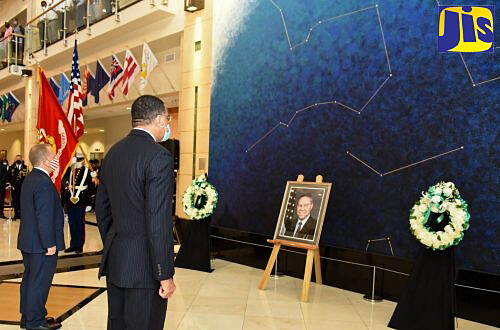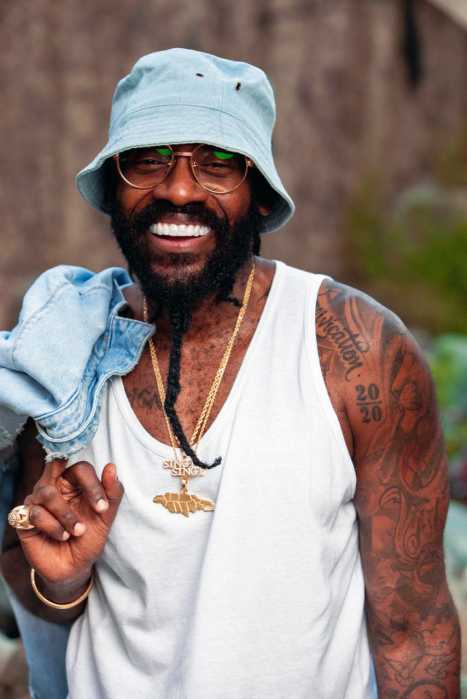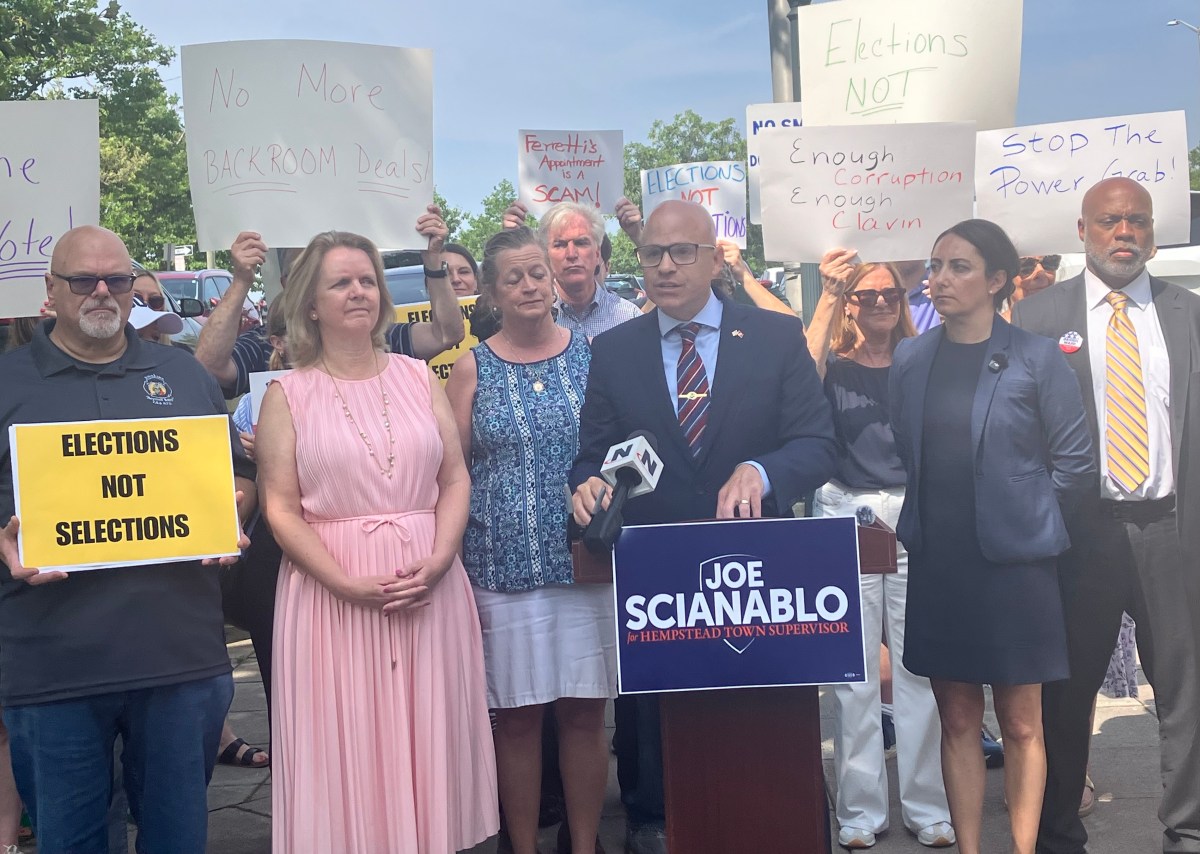If you know your history
Then you would know where you coming from
Then you wouldn’t have to ask me
Who the ‘eck do I think I am
Bob Marley, Buffalo Soldier
On Heroes Day in Jamaica, Gen. Colin Powell, America’s first Black four star Army general, first Black, national security adviser, first Black, secretary of state and the first Black chairman of the Joint Chiefs of Staff died.
The news reverberated with disbelief and sadness throughout the world to generate conversations about the might of the man whose legacy dominated the media landscape that day.
On hearing reports, Jamaica’s Prime Minister Andrew Holness who first met Gen. Powell three years ago posted a condolence message and afterwards rushed to the US Embassy in Kingston to pay tribute to the patriot.
“When I decided that my path would be in politics, Colin Powell was one personality in the political space that inspired me. Many of us take inspiration from the life and work of Secretary Powell. He remains a source of great joy and pride for all of us at home and abroad,” PM Holness said.
“We all have reason to reflect on the life of one who distinguished himself through public service.”
He lived a distinguished life of service.”
In exhorting the accomplishment of the former troop commander, Jamaica’s youngest elected leader added that Powell rose to the pinnacle of his career in the United States government to “set a trail and example for others to emulate.”
His remarks resonated with irony on the same day Jamaica commemorated Heroes Day.
His timely comment added “Gen. Colin Powell is the first Jamaican-American to serve on the Joint Chiefs of Staff as Chairman.”
The son of Jamaicans Maud Ariel (Mc Koy) and Luther Theophilus Powell was revered on the island.
Gen. Powell embodied the image reggae singer Bob Marley depicted in a song titled “Buffalo Soldier.”
Released as a single in 1983 from the album “Confrontation” the song gained traction two years after the Rastafarian musician died and four years after Powell’s promotion to first gold star ranking as brigadier general in the US Army in 1979.
“Said, he was a Buffalo Soldier
Win the war for America
Buffalo Soldier
Dreadlock Rasta”
The composition proved to be a musical textbook on American history which enlightened millions on the contribution of Black men who defended America despite racial prejudice throughout the centuries.
Marley’s homage to the pioneering Black fighters detailed their mettle, bravery and pride in service and his lyrics particularly represented military service rendered by a modern day trailblazing Buffalo Soldier named Gen. Colin Powell who served two terms in Vietnam, Panama, Somalia and the Gulf War.
“Troddin’ through San Juan in the arms of America
Troddin’ through Jamaica, a Buffalo Soldier –
Fighting on arrival, fighting for survival
Buffalo Soldier, Dreadlock Rasta…”
According to Wikipedia – “Buffalo Soldiers originally were members of the 10th Cavalry regiment of the United States Army, formed on September 21, 1866, at Fort Leavenworth, Kansas.
The portal explains the nickname as one given to the Black fighters by Native American tribes who fought in the Indian Wars.
The site also elaborates how eventually the term Buffalo Soldiers became ‘synonymous with all of the African-American regiments formed in 1866.”
History denotes their deployments during the Spanish-American War, World War I and II, the Battle of San Juan Hill, Cuba, along the Mexican borders, the Philippine-American War and their many encounters across the Great Plains.
In his 1995 biography, “My American Journey” Gen. Powell wrote that while visiting the Kansas installation the soldiers united — in his capacity as a one-star general he often jogged past the Circle of First in the Buffalo Soldier Commemorative Area.
He said there where the Black soldiers billeted and bunked the only public record of their service was limited to street signs signaling 9th and 10th Cavalry Aves.
He decided then that a significant monument should permanently herald the dedicated patriots of Fort Leavenworth.
According to FtLeavenworthlamp.com Gen. Powell was awarded his second star at that military post in Grant Auditorium on June 19, 1983. (Juneteenth Day).
Mindful of a mission to impact soldiers, he initiated a project to create a larger memorial at Fort Leavenworth.
Independently and without fanfare he sought funding and support until the Buffalo Soldier Monument was completed.
Mission accomplished, he dedicated a monument July 28, 1992.
“I believed I had a duty to those Black troops who eased my way. Building a memorial to the Buffalo Soldiers became my personal crusade,” Powell wrote.
As history will now recall, in 2014 a bust in honor of Gen. Powell’s outstanding contribution to the Armed Forces was dedicated at Fort Leavenworth. His likeness is a permanent fixture at the military base.
Detractors to Gen. Powell’s legacy cite a narrative referencing his allegiance to the Republican Party which they perceive as anti-Black, supremacist and attractive primarily to the Black bourgeoisie.
However, his admirers contend the Harlem-born, son of Jamaican immigrants might have redeemed himself when he apologized for advocating an unjust war in Iraq.
That faulty intelligence address he gave at the United Nations in 2003 hovers as a blemish he has said he regretted.
He admitted his error and expressed sorrow for promoting a war which resulted in the deaths of American and Iraqi soldiers.
Following retirement from 35 years of military service, Gen. Powell seemed to have shifted his conservative ideals when he defied his party’s choice candidate in 2008 to endorse the Democrat’s more liberal Barack Obama to lead the country.
Through two presidential campaigns he endorsed the first Black president of the United States. And in 2016 supported Hillary Clinton over the popular Republican Donald Trump.
Disenchanted with his party’s politics, in 2020 he also supported Joe Biden, a Democrat.
Following the Jan. 6, 2021 insurrection at the US Capitol, the retired Army General Powell fully committed himself to making his own decisions on America’s politics, by distancing himself from the Republican Party.
“Right now I’m just watching my country and not concerned with parties.”
The immigrant son who first served a fellowship at the White House under President Richard Nixon, worked in official capacities under three presidents (twice with Ronald Reagan, George and H. W. Bush) received three electoral votes in 2016 even though he was not a presidential candidate.
Gen. Colin Luther Powell succumbed on Oct. 18, 2021 to complications from COVID-19 while battling blood cancer.
By the way, reportedly although his parents insisted on the Jamaica-preferred reference of his name, KOHL-IN, from childhood, his admiration of World War II bomber pilot Colin P. Kelly Jr. influenced the pronunciation he was commonly known.
Catch You On The Inside!
























